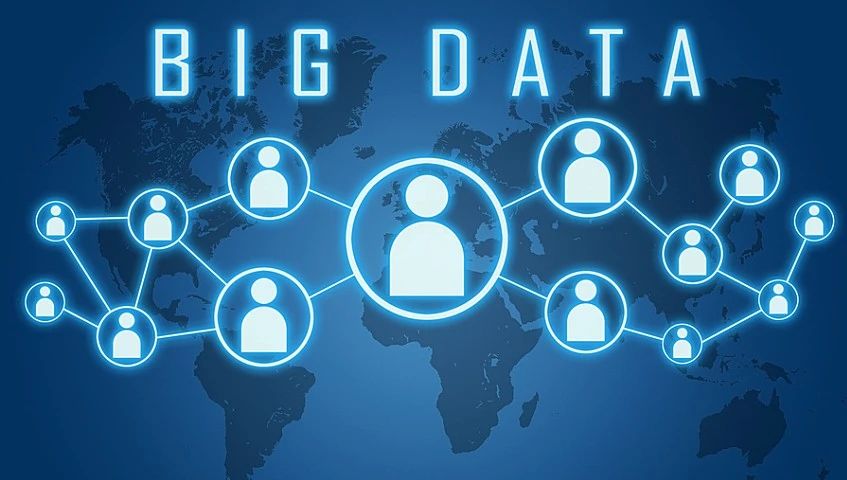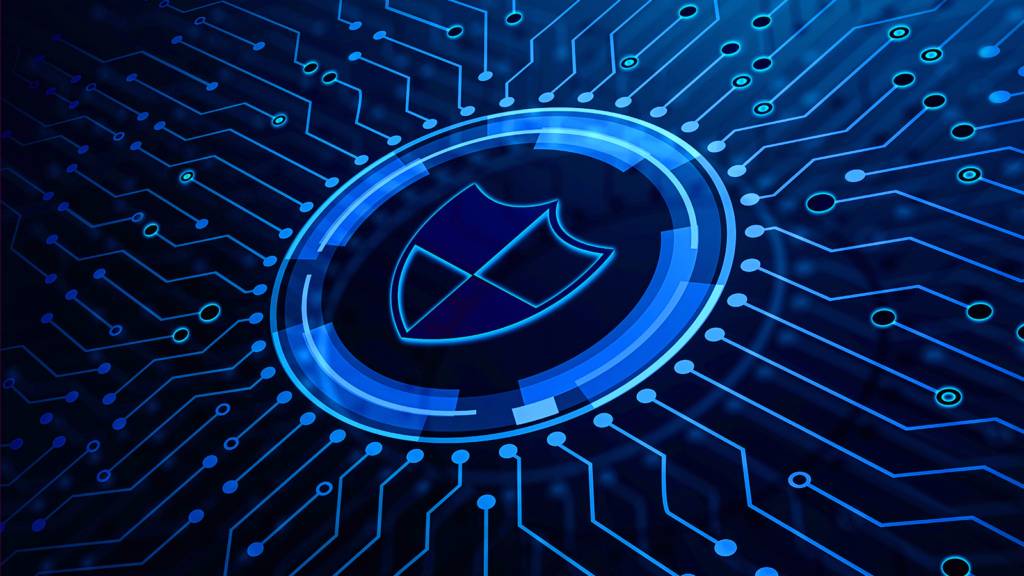Characterized by the constant expansion of data and a rising dependence on linked digital systems, the junction of technology, ethics, and global politics has grown ever more important in the modern digital era and calls careful attention from all people of society. The important subject of big data and the ethics of cybersecurity calls for a thorough investigation of the methods of data collecting, management, and usage for security needs together with consideration for the possibility of unintended effects. Concurrent with this, the geopolitics of cybersecurity omscs—Online Master of Computer Science—emphasizes the strategic relevance of digital technologies inside the framework of world politics.
This post investigates the complex ethical issues raised by big data analytics in the framework of cybersecurity and investigates the influence of geopolitics on the evolution of artificial intelligence in view of cyberdefense plans. By addressing technical and ethical issues, we will also look at how online master’s programs in computer science are adjusting to teach these required abilities. This analysis of big data and the ethics of cybersecurity, together with the corresponding element of geopolitics of cybersecurity omscs, offers a multifarious and complicated picture of this fast changing scene.
Big Data in Cybersecurity: Appreciating the Scene

Understanding the pragmatic uses of big data in cybersecurity is essential before delving into the ethical consequences and geopolitical setting:
- Enhanced Threat Detection Capabilities: Big data analytics processes massive amounts of network traffic logs, event data, and other data sources, therefore enabling security systems to find intricate patterns, abnormalities, and even to forecast possible attacks. This is significantly more successful than more antiquated techniques as it can spot trends and patterns usually invisible in previous approaches.
- Faster Incident Response and Remediation: Big data analytics can speed the analysis process in the event of a security incident so that security teams may better grasp the extent of the attack, more quickly identify which particular systems were compromised, and also quickly apply remedial actions. Often entirely automated, this method guarantees a quick and efficient reaction.
- Proactive Vulnerability Management: AI and data analytics may assist to find and prioritize the vulnerabilities in software, hardware, and networks by means of data analysis from many sources, therefore enabling timely, foresight for addressing these flaws before they are used by hostile actors. This kind of preventive strategy could stop major data leaks or harm.
- Effective User Behavior Analysis: Big data analysis may also be applied to monitor user activities inside systems, find internal threats, and even to spot hacked accounts. Usually, one follows a regular pattern of activity and then notes when a particular user has acted outside of that pattern.
- Predictive Security Analytics: Using machine learning and other artificial intelligence methods, predictive security analytics examines large datasets to find the most likely targets of a future cyber attack and lets security teams better deploy resources to stop these assaults before they even start. In the present scene of threats, this is a crucial instrument.
- Automated Response and Mitigation: Many daily security chores may now be automated as artificial intelligence tools advance, including the usage of AI powered security systems that can both detect and also prevent any security breaches. In fast paced, big scale networks, where automated technologies are more equipped to respond rapidly than a human security specialist, this is especially successful.
Knowing these several uses of big data in cybersecurity emphasizes both the possibilities and the ethical difficulties related to this kind of technology.
Big data and cybsecurity ethics: negotiating the minefield
Although using big data in cybersecurity has some major ethical questions even if it promises great improvements:
- The Erosion of User Privacy: The great privacy issues raised by the massive gathering and analysis of personal data especially in light of most of this data being obtained without clear user agreement. This can also result in function creep, in which case user data is always at danger of being exploited and data is being utilized for goals not clearly expressed.
- Data Bias and Algorithmic Discrimination: Targeting certain groups more than others, data bias and algorithmic discrimination resulting from AI algorithm training on datasets possibly including prejudice might result in unfair, discriminating and unjust security practices. For instance, this may cause some demographic groups—regardless of their behavior—to be more prone to be labeled as a possible danger.
- The opaque nature of artificial intelligence decision-making: Many times, the intricacy of AI algorithms makes it challenging to grasp how security judgments are taken. This lack of openness sometimes results in distrust and lack of responsibility as well as restricted influence of the end user over the choices about their online security.
- The Dangers of Surveillance Creep: Constant use of big data for security purposes can lead to a sensation of continuous monitoring, which violates personal privacy, and can also result in the abuse of power by those who have access to such thorough personal information. This is known as surveillance creep. This generates an imbalanced power dynamic, hence this should be a main focus.
- Lack of manage Over User Data: The issue of who owns the data, who has the authority to manage it, and how it may be used begs more ethical issues not yet completely addressed by present laws or processes. This also helps the end users to grasp their own rights.
These ethical issues highlight the immediate necessity of critical thought, openness, and also strong control to safeguard personal rights.
The geopolitics of cybersecurity: negotiating a convoluted terrain

The geopolitics of cybersecurity omscs exposes that cybersecurity is not just a technological difficulty but also a crucial component of international relations:
- Cyber Warfare and Espionage: Nations are currently involved in cyberwarfare and espionage activities, mostly employing these methods to obtain access to sensitive information, to destroy important infrastructure, and to also accomplish certain military and political objectives. This activity takes place during times of peace as well as during war; the use of these kinds of strategies has lately evolved into a feature of the geopolitical terrain.
- Data Control and Digital Sovereignty: Nowadays, the assertion of national authority and the attainment of political and economic influence in the worldwide scene depend much on the management of data and digital infrastructure. This has driven more rivalry for data storage and technological management.
- Data Localization Requirements: Many nations are also developing data localization rules, which mandate data to be kept and handled inside their respective borders. This illustrates the rising worry about data sovereignty and control as well as a means of stopping foreign governments from gaining access to data.
- The Global Tech Competition: Geopolitics now revolves mostly on the struggle for supremacy in the artificial intelligence, cloud computing, and other allied disciplines of technology. Driven by national security, political, and financial issues as well as a mirror of world power dynamics, this continuous technical competitiveness is driven.
- Developing International Norms and Regulations: With the intention of establishing a more stable and predictable environment for technology and security policy, several continuous activities at the international level strive to produce rules and agreements relating to cybersecurity. These worldwide accords are challenging to implement and influenced by political and financial factors as well.
- The Need for Specialized Skills: All of the above elements demand highly skilled cybersecurity professionals, and specialized educational programs like the OMCS programs which have been created to meet the growing demand for qualified cybersecurity professionals, and also to help educate experts who have a grasp of these complex geopolitics.
These elements show the complex relationship between cybersecurity and world politics as well as the need of international collaboration in order to attain stability and lower the possibility for major cyberwarfare.
The Essential Function of geopolitics of Cybersecurity Omscs in Handling Difficulties
The geopolitics of cybersecurity omscs also emphasizes the crucial need of higher education in this complicated surroundings:
- Developing Skilled Cybersecurity Professionals: Online Master’s Programs in Computer Science (OMCS) with an emphasis on cybersecurity serve primarily to equip qualified professionals with the particular knowledge required to handle these difficult problems. These experts will require not only acute awareness of ethics and the geopolitical issues involved but also technological knowledge.
- Ethical Awareness and Responsible Innovation: OMCS programs are also meant to stress the need of ethical issues, educate students about responsible innovation, and assist them in realizing the possible hazards connected to some technologies.
- Understanding the Geopolitical Landscape: Students in OMCS programs also study about international relations, digital espionage, and the intricate mechanics of cyberwarfare as well as the geopolitical ramifications of cybersecurity. This offers a more complex viewpoint than several other training courses might offer.
- Facilitating Cutting Edge Research and Development: By establishing an atmosphere that promotes creativity, OMCS programs also assist to support the study and development of new approaches and technologies in the field of cybersecurity.
- Collaboration and Information Sharing: By combining professionals, these initiatives will also promote worldwide cooperation in the fields of cybersecurity, therefore facilitating the flow of knowledge and best practices for the evolution of more strong security systems.
Therefore, a crucial component of the continuous growth of the cybersecurity sector as well as the training of cybersecurity experts are OMCS programs.
The Road Forward: Juggling Security with Ethics in a Globalized World
A balanced strategy stressing the following aspects will help to solve the ethical and geopolitical concerns of big data in cybersecurity:
- Transparency and Accountability: AI systems and security systems have to be open and responsible, and they have to be under suitable control. This covers information exchange as well as a greater awareness of the current applied decision-making process.
- Focus on User Privacy: Data privacy has to constantly be first concern; so, data should always be gathered and applied under open and accountable standards. Privacy and security have to constantly be taken into account jointly, not as if they are oppositional.
- Mitigating Bias and Discrimination: Eliminating prejudice from algorithms and data sets must be proactive steps toward mitigating bias and discrimination, thereby guaranteeing fair and equal results.
- Establishing Clear Ethical Standards: Establishing defined ethical standards for the development and application of artificial intelligence and cybersecurity technologies will enable us to guarantee that these technologies are being utilized in a way that is consistent with human values.
- International Cooperation: All nations ought to keep working together on cyber security concerns if we are to create consistent worldwide norms and assist to stop world cyberwarfare.
- Ongoing Education and Awareness: The general public, developers, and legislators have to be informed on the ethical consequences of artificial intelligence and cybersecurity as well as on the several geopolitical issues engaged; this should be an ongoing and continuous process.
These actions will help us negotiate the challenging terrain of big data, ethics, and geopolitics and produce a safer, more secure, and more conscientious digital future.
Conclusion
Seen through the prism of geopolitics of cybersecurity omscs, the junction of big data and the ethics of cybersecurity offers a difficult and always changing dilemma. Big data presents major privacy, bias, transparency, and potential for misuse issues even while it can improve security systems. The geopolitical aspects of cybersecurity also contribute to the complexity as countries fight for digital domain authority and control. Lack of clarity on legal and regulatory systems and continuous attempts to develop new rules that would be efficient in the face of ever advanced cyber dangers complicate this even further.
Dealing with these issues calls for a multifarious strategy combining technical innovation with a strong emphasis on ethics, transparency, international cooperation, and also a focus on education and development programs, such the OMCS programs meant to produce the cybersecurity leaders of tomorrow. In order for us to all enjoy the advantages of the digital era without sacrificing our basic rights or security, prudent development and deployment of these technologies is ultimately essential.
FAQs
Q1: In the perspective of cybersecurity, what is “big data”?
A: Big data in cybersecurity refers to compiling and examining vast amounts of network traffic, logs, and other data sources in order to identify security flaws, trends, and threats.
Q2: What ethics of cybersecurity and big data’s crucial are here?
A: Privacy difficulties, algorithmic bias, lack of openness, possible monitoring creep, and uncertainties about data ownership and management are among the main causes of major worries.
Q3: How may cyberattacks and cyberdefense be improved using artificial intelligence and machine learning?
A: Though they may be used to enhance threat detection and incident response, hence highlighting the continuous struggle between attackers and defenders, AI technologies can also be used to generate more complex assaults.
Q4: Describe “geopolitics of cybersecurity.”
A: This phrase describes in the digital sphere the intricate interaction of national security, economic competitiveness, and international relations. This covers worries on commerce, cyberwarfare, espionage, and data sovereignty.
Q5: What part does geopolitics of cybersecurity omscs play in challenging norms?
A: Online Master’s degrees in Computer Science (OMCS) emphasize geopolitics of artificial intelligence and offer instruction in both technical and ethical spheres of cybersecurity. They also offer a means for producing fresh cybersecurity professionals.
Q6: Why is openness so crucial in creating artificial intelligence security mechanisms?
A: Building public confidence depends on openness; additionally, it guarantees that these systems can be audited and comprehended by both public servants and developers. It also points out possible problems before they become more significant.
Q7: In the framework of cybersecurity, what is meant by data sovereignty?
A: Data sovereignty is the idea that a country ought to have authority over data produced within of its boundaries. This sometimes results in data localization needs in different nations all across the world.
Q8: What relationship exists between cyberwarfare and artificial intelligence?
A: Emphasizing a continuing arms race, artificial intelligence may be utilized to both increase the breadth and efficacy of cyberattacks and develop fresh approaches of defense. Governments and military groups are finding this sector growingly vital.



